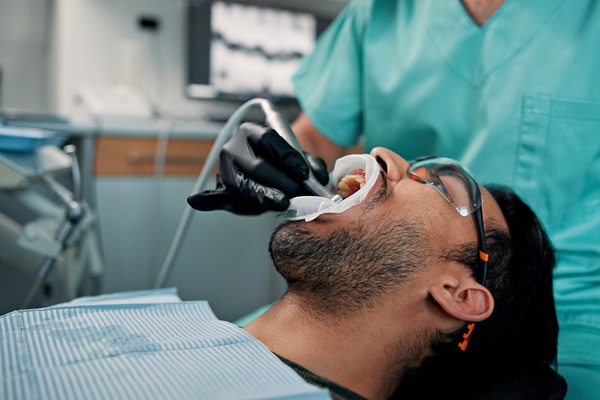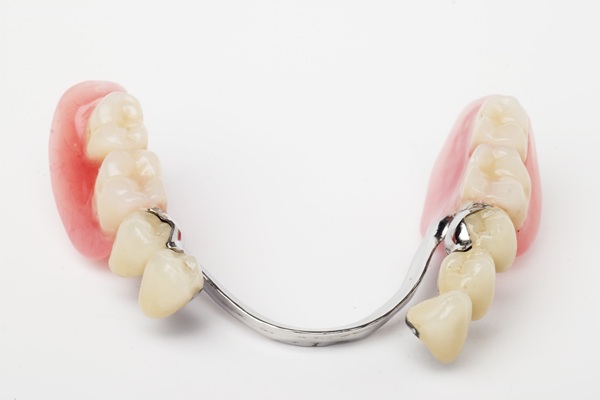Why Is an Oral Cancer Screening Important?

The American Dental Association recommends going to your dentist at least twice a year for dental exams. The exams help improve your oral health and allow your dentist to see if you have any dental problems that need treatment.
Another benefit of dental exams is the fact that they also allow your dentist to check for signs of oral cancer. This is a disease that over 40,000 people in the United States were diagnosed with in 2014. Men are twice as likely to have oral cancer as women, so if you are a man, this is something you have to keep in mind.
Oral cancer screening
During a dental exam, your dentist will give you a basic oral cancer exam, which involves them checking under your chin, checking your gums, your lips, your tongue, your cheeks and the roof of your mouth for lumps or any other symptoms. The basic test usually takes less than five minutes, and it is not as comprehensive as the oral cancer screening.
Your dentist may also ask you to rinse your mouth with blue dye, so if unusual cells absorb the dye in your mouth it will be easier to notice.
If your dentist notices anything suspicious during a basic oral cancer screening, they will have you schedule another appointment to check for changes. Your dentist may also recommend going for a biopsy. The dentist can either send a piece of tissue from the suspected area or recommend a doctor who can perform the biopsy for you.
To be on the safe side, ask your dentist to perform an oral cancer screening to make sure you do not have it.
If the suspected tissue turns out to be nothing, you can rest easy knowing you don’t have oral cancer. If it turns out to be cancer, there is no need to panic because your dentist caught it early, giving you a better chance of beating the disease.
How do you develop oral cancer?
Factors that can lead to the development of oral cancer include smoking, heavy drinking, history of cancer in the family, excessive exposure to sunlight and certain Human papillomavirus (HPV) strains. Tobacco users are six times more likely to get oral cancer than non-smokers. Users of smokeless tobacco, products like dip and chewing tobacco, are at an even higher risk of having cheek or gum cancer.
Heavy alcohol consumers are also six times more likely to get oral cancer than non-drinkers. If you consume alcohol and smoke or use smokeless tobacco, you should give up the habits to decrease your chances of getting diagnosed with oral cancer.
How is oral cancer treated?
Oral cancer can be treated the same way other forms of cancer are treated, with surgery to cut the growth and radiation treatment.
Conclusion
Cancer is not a disease to be taken lightly, which is one of the reasons dentists perform oral cancer checks during dental exams. If you want to be proactive and detect oral cancer early, you should perform a self-exam every month and schedule regular dental exams to stay on top of the situation.
Are you considering oral cancer screening in the Lincroft area? Get more oral cancer screening information at https://lincroftvillagedental.com.
Recent Posts
Oral cancer is a serious disease that can affect all parts of the mouth. If you suspect you have this condition, you should visit a general dentistry professional or doctor right away. Some people are more prone to getting the disease than others. There are also clues that should give you a good idea that…
Most adults experience some degree of gum disease during their lifetime, but it does not necessarily lead to tooth loss. Understanding how to identify and treat the stages of this common ailment can prevent it from spreading and reduce its impact.Gum disease is an infection of the gum tissue surrounding the teeth. It starts with…
If you are struggling with gum disease, you should see your dentist as soon as possible. This can be a serious condition, especially if it goes untreated. This issue can lead to even more problematic health concerns. There are ways you can prevent this disease from ever occurring. The dentist can also treat it to…
According to the American Dental Association, around 42% of adults over 30 in the United States have some form of gum disease. While access to dental care has helped lower the number of patients who lose teeth to periodontitis, it is still a serious issue that the dental field faces. Gum disease is a largely…


